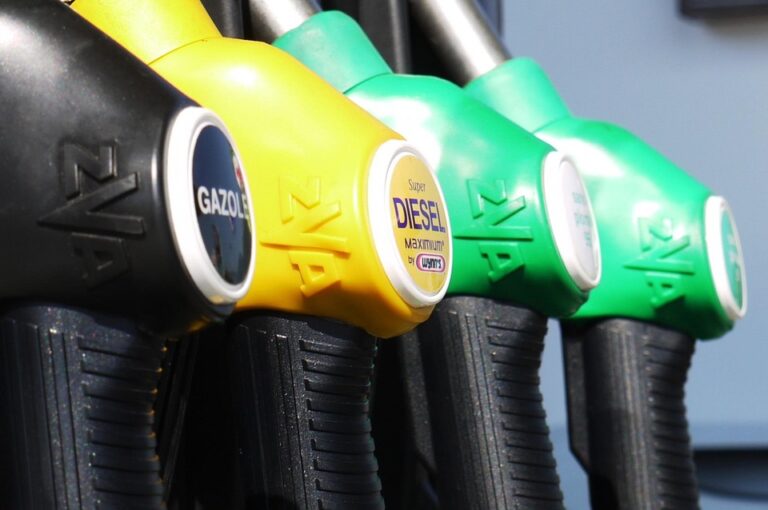Diesel vs. Petrol: Which Fuel Is Right for Your Vehicle?
When it comes to choosing the right vehicle fuel, the debate often oscillates between diesel vs. petrol. Each fuel type has its advantages and disadvantages, making it crucial for vehicle owners to make an informed decision based on their specific needs and driving habits. In this comprehensive guide, we will delve into the key differences between diesel and petrol, their respective benefits, and which may be the best fit for your vehicle.
Understanding Diesel and Petrol
Before diving into the comparisons, it’s essential to understand what differentiates both fuels.
What Is Diesel?
Diesel is a type of fuel derived from crude oil, specifically designed for diesel engines that utilize compression ignition rather than spark ignition. Diesel engines are known for their fuel efficiency and higher torque capabilities.
What Is Petrol?
Petrol, also known as gasoline in some regions, is composed of refined crude oil and is used in petrol engines, which rely on a spark to ignite the air-fuel mixture. Petrol engines typically offer higher speeds and a smoother driving experience, especially in smaller vehicles.
Key Differences in Performance
Fuel Efficiency
One of the significant differences between diesel and petrol lies in their fuel efficiency. According to a recent report by the International Energy Agency, diesel engines can often deliver between 20% to 30% better fuel economy compared to petrol engines. This makes diesel a better choice for long-distance driving or commercial vehicles that need to cover extensive routes.
Power and Torque
Diesel engines produce more torque at lower speeds due to their compression ignition system. This means they can handle heavier loads without straining as much as petrol engines. For instance, if you frequently haul trailers or drive in rugged conditions, a diesel vehicle may be more suitable.
Emissions
When considering diesel vs. petrol, emissions are another critical factor. Typically, diesel engines emit less CO2 per mile than petrol vehicles, which is advantageous for environmentally conscious drivers. However, they do produce higher levels of nitrogen oxides (NOx) and particulates that can contribute to air pollution. Recent regulations in many countries have led to increased scrutiny of diesel emissions, which is essential to consider for prospective buyers.
Cost Considerations
Initial Price
Diesel vehicles often come with a higher initial price tag compared to petrol vehicles. However, they tend to have a longer lifespan, making them a cost-effective option in the long run.
Fuel Prices
Fuel costs can vary based on geographic location, but in recent years, diesel has often proven to be cheaper per litre compared to petrol. Yet, this can fluctuate, meaning it’s wise to monitor local fuel prices for both commodities.
Maintenance and Longevity
Maintenance Costs
Maintenance costs can differ significantly between diesel and petrol vehicles. Diesel engines, while robust, require more expensive parts and specialized knowledge for repairs. On average, diesel engine maintenance can be 20%-30% higher than petrol engines.
Longevity
Diesel vehicles are renowned for their durability. It’s not uncommon for a diesel engine to last well over 300,000 miles with proper care, while petrol engines usually have a lifespan of around 200,000 miles.
User Experience and Driving Style
Driving Habits
If you primarily drive in urban settings with short commutes, a petrol vehicle may be more beneficial. Petrol engines warm up faster and run more efficiently at lower speeds. Conversely, if you undertake long highway commutes, a diesel vehicle can provide better fuel economy and a more comfortable driving experience.
Noise and Vibration
Diesel engines are typically noisier and produce more vibrations than their petrol counterparts. Advances in technology have reduced this gap considerably, but it’s something to consider if you prefer a quieter ride.
Making the Right Choice
Ultimately, the decision of diesel vs. petrol depends on several factors, including driving habits, cost considerations, and environmental impacts. For individuals seeking value in terms of fuel efficiency and longevity, diesel may be the optimal choice. On the other hand, those who prioritize a quieter, smoother driving experience may find petrol more agreeable.
Conclusion
In conclusion, the choice between diesel vs. petrol is multifaceted and should be guided by personal preferences and specific needs. As the automotive industry continues to evolve with alternative fuel technologies, understanding these differences is vital for making an informed choice that aligns with your lifestyle.
Additional Resources
For more insights on vehicle choices and the latest in automotive news, check out our articles on Electric Vehicles: The Future of Driving and Maintaining Your Car Effectively.
For external references, consider exploring data from the International Energy Agency for further understanding of global market trends.
Images Suggestions:
- Image Alt Text: Diesel vs. Petrol fuel types graphic.
- Image Alt Text: Chart comparing fuel efficiency of diesel and petrol.
By incorporating this structure, the article caters to the audience interested in the ongoing debate between diesel and petrol vehicles, enhancing reader engagement and SEO visibility.


